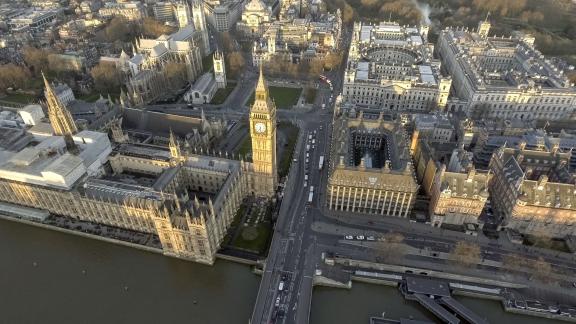Health and care bill: Lords Report Stage joint briefing

Background
The NHS Confederation, NHS Providers and The King’s Fund support the premise of the Health and Care Bill, and believe that the future of health and care in the England must be based on collaboration and partnership working at a local level.
We do, however, share a number of key concerns regarding the Bill. This joint briefing covers two specifics aspects of the Health and Care Bill. To better ensure people across the country have access to the best possible care in their local community, we believe:
- The new powers for the secretary of state to direct NHS England (clause 39) require significant safeguards to be added.
- The new powers for Secretary of State to intervene in local service reconfigurations (Clause 40, Schedule 6) should be stripped form the Bill, or at the very least, significant safeguards be put in place to limit their use.
If you would like to have a further briefing from us, or if you plan to speak in the debate, please do get on touch with Caitlin Plunkett-Reilly, external affairs manager (public affairs).
General Power to direct NHS England (Clause 39)
These powers open up the possibility of ministers’ involvement in aspects of the operational management of the health service. We are concerned that without appropriate safeguards in place, decisions might not be properly focused on the best interests of services and populations. Those concerns were echoed by the Lords Constitution committee report on the Bill published in January which stated that these new powers
could alter the balance between the government’s constitutional responsibility for the provision of health care and providers’ ability to function in a manner that can respond effectively to local needs.
Clinical and operational independence must be maintained in order to ensure equity for patients within the service; the best use of constrained funding; and clinical leadership with regard to prioritisation and patient care. While the intention may be to deploy these powers on rare occasions, the breadth of the powers as currently drafted is so great that safeguards must be put in place. We welcome the decision to add a duty to publish any direction given to NHS England, but believe additional safeguards are needed at the very least to protect the NHS’s independence. These safeguards include:
- The need for full and timely transparency when the power is exercised – we believe this should include the need for the Secretary of State to set out why their use of the power of direction, on each occasion, meets an objectively defined public interest test before giving a direction. The Secretary of State should also publish any direction together with an impact assessment at the time that the direction is issued and lay it before Parliament.
- The addition of further exceptions to the use of these powers, including removal of the powers to direct procurement decisions, the granting of NHS funds, local NHS operational decisions, and the fair share allocations to local systems and joint financial objectives for integrated care boards.
A lack of safeguards could arguably expose the government, any Secretary of State, the service, and patient care to undue, unmanaged risk.
Our ask: we urge peers speak in opposition to the powers as they stand and encourage the government to bring forward amendments that will put safeguards on these powers. We urge peers to vote for the amendment in the name of Lord Lansley that would exclude ICS allocations and the procurement of goods and services from these powers.
Local reconfigurations (Clause 40)
We are concerned about the unchecked new powers for the Secretary of State to intervene at any stage of a local service reconfiguration, with no minimum set of information requirements on which to base such a decision.
The government’s own impact assessment says that interventions in local reconfigurations by Secretary of State could increase costs to local healthcare systems by slowing down the process. It also flags that ‘what constitutes a service change that merits, or not, ministerial attention can be subjective, and might change as reconfiguration proposals develop – it would be primarily a matter of ministerial judgement.’
This would undermine clinical decision making, which must be central to such decisions. Without a requirement for the Secretary of State to justify why a decision on service reconfiguration is in the public interest, it may be hard to convince the public that decisions about their local services are being made based on a robust clinical rationale. This could undermine public trust in their local services.
This is even more important in the context of the elective backlog. Local services may need to make small changes to the way services are delivered to make progress through long waiting lists and these new powers would see the Secretary of State being pressured to intervene, causing a large number of cases to be worked through by DHSC, causing further delays to care and limiting progress.
We urge the government remove these new powers from the Bill, or at the very least, bring forward amendments similar to those proposed by Baroness Cumberlege at Committee that would:
- Limit the exercise of these powers to large scale or complex changes to avoid drawing in Ministers in minor or routine service change. Ensure clinical advice is always considered in decisions about changes to services and is accountable to local communities where changes are sought.
- Provide transparency about why such intervention is in the public interest.
- Accelerate decisions, which must be made within 3 months of calling a decision on local reconfiguration in, to provide certainty to services and avoid a logjam at the Department.
- A lack of safeguards could arguably expose the government, any Secretary of State, the service, and patient care to undue, unmanaged risk.
These suggested amendments are intended to be a compromise to put essential checks and balances on the new powers, protect patient safety and ensure transparency with patients and the public.
Whilst we believe the system for local reconfigurations as it stands, involving the Independent Reconfiguration Panel (IRP), works well, we acknowledge the point made by the Minister at Second Reading of the Bill in the House of Lords regarding accountability to government. Amendments based on the principles above would stop undue political influence on the running of local health and care services which will be a particular risk in the run up to elections and in the context of the addressing the elective backlog – which the current Secretary of State has said is a key priority for the government.
Our ask - we urge peers to speak in opposition to the powers as they stand, vote for the amendment in the name of Baroness Thornton and Lord Patel to scrap the clause altogether, or urge the government to, at the very least, to introduce safeguards to limit the use of these powers
We believe this will show the strength of opposition to the powers over local reconfigurations as they stand in the Bill and prompt government to revise them.
This ask is also supported by:
- British Medical Association
- Centre for Governance and Scrutiny
- Health Devolution Commission
- Nuffield Trust



